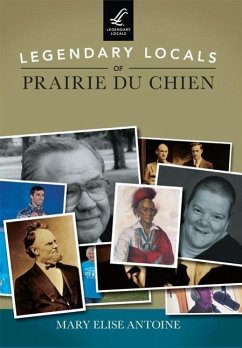From the day Jacques Marquette and Louis Joliet entered the Mississippi River in 1673, fur traders, and then settlers, were drawn to Prairie du Chien. Red Bird and Black Hawk opposed American expansionism, while Zachary Taylor enforced the change. John Muir admired the majesty of the Mississippi River, and John Lawler accepted the challenge to bridge the waters. As people came to Prairie du Chien, generations worked to form a small, cohesive community. Some, like George and Dorothy Jeffers, Ralph and Albina Kozelka, Henry Howe, and Frank Stark, began businesses that descendants continue to operate. John Peacock and Mike Valley found a livelihood from the river. Art Frydenlund, Jim Bittner, and Fred LaPointe promoted and encouraged all to come. B.A. Kennedy and Jack Mulrooney created an outstanding educational and sports program. Peter Scanlan and Cal Peters recorded the rich history. Roy and Geraldine George established the George Family Foundation, and Morris MacFarlane led a movement to create scholarships. Lori Knapp helped disabled people without realizing her impact. Politician Patrick Lucey and cowgirl Elaine Kramer gained national recognition. All these people and others, like Dr. T.F. Farrell and Robert Garrity, were neighbors. Their stories fill these pages.
Bitte wählen Sie Ihr Anliegen aus.
Rechnungen
Retourenschein anfordern
Bestellstatus
Storno


